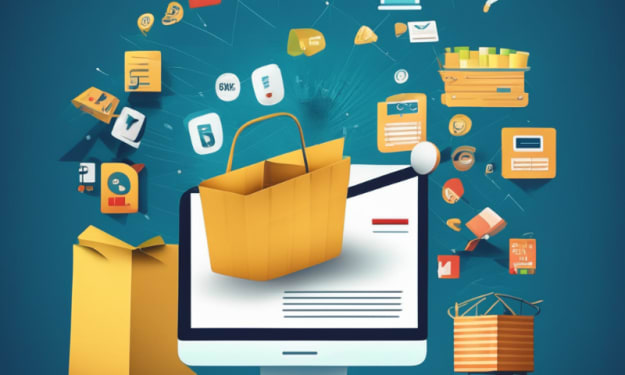Content warning
This story may contain sensitive material or discuss topics that some readers may find distressing. Reader discretion is advised. The views and opinions expressed in this story are those of the author and do not necessarily reflect the official policy or position of Vocal.
difference between e-commerce and digital marketing
Ecommerce and Digital Marketing: Transforming the Future of Retail

Ecommerce and digital marketing are two distinct but closely related concepts that have changed the way businesses operate in the modern world. Ecommerce refers to the buying and selling of goods and services through online platforms, while digital marketing involves the use of digital channels to promote products and services.
Ecommerce has become increasingly popular over the years due to its convenience and accessibility. With ecommerce, consumers can easily shop for products and services from anywhere in the world, at any time of the day. This has led to the growth of online marketplaces such as Amazon, eBay, and Alibaba, which have become some of the largest retailers in the world. In addition, ecommerce has provided small businesses with a level playing field to compete with larger companies, as they can now reach a global audience without the need for a physical store.

Digital marketing, on the other hand, has become an essential component of modern business strategy. With the rise of digital channels such as social media, email, and search engines, businesses can target specific audiences with personalized messages and advertisements. Digital marketing has also made it easier for businesses to track and analyze the effectiveness of their campaigns, which has led to more efficient use of marketing budgets and increased ROI.
While ecommerce and digital marketing are two distinct concepts, they are closely intertwined. Ecommerce relies heavily on digital marketing to drive traffic to online stores and convert visitors into customers. Digital marketing, in turn, relies on ecommerce to provide a platform for businesses to sell their products and services.

The future of ecommerce is bright, as it is expected to continue growing at a rapid pace. According to Statista, global ecommerce sales are projected to reach $6.5 trillion by 2023, up from $3.5 trillion in 2019. This growth is being driven by several factors, including the increasing popularity of online shopping, the rise of mobile commerce, and the expansion of cross-border ecommerce.
One of the key advantages of ecommerce is its ability to reach a global audience. With the rise of cross-border ecommerce, businesses can now sell their products and services to customers in different countries, without the need for a physical presence. This has opened up new markets and opportunities for businesses of all sizes, and has led to the growth of online marketplaces such as Alibaba and Amazon.

Another advantage of ecommerce is its ability to provide a personalized shopping experience. With the use of data analytics and machine learning, ecommerce platforms can now provide personalized product recommendations, targeted promotions, and customized shopping experiences. This has led to increased customer loyalty and higher conversion rates for businesses.
Ecommerce has also become more accessible to small businesses, thanks to the rise of ecommerce platforms such as Shopify and WooCommerce. These platforms provide businesses with the tools and resources they need to set up an online store, manage inventory, and process payments, without the need for technical expertise.
In addition, the rise of mobile commerce has made ecommerce even more accessible to consumers. With the increasing use of smartphones and tablets, consumers can now shop for products and services on the go, from anywhere in the world. This has led to the development of mobile-first ecommerce platforms and the rise of mobile advertising.
While ecommerce is the future of retail, it is important to note that digital marketing will continue to play a crucial role in driving traffic and sales to online stores. As ecommerce becomes more competitive, businesses will need to invest in digital marketing to stand out from the crowd and reach their target audience.

In conclusion, ecommerce and digital marketing are two distinct but closely related concepts that are transforming the way businesses operate in the modern world. Ecommerce provides businesses with the ability to reach a global audience, provide a personalized shopping experience, and access new markets and opportunities. Digital marketing, on the other hand, provides businesses with the tools and resources they need to drive traffic and sales to their online stores. Together, ecommerce and digital marketing will continue to shape the future of retail and provide businesses with new opportunities for growth and success.





Comments
There are no comments for this story
Be the first to respond and start the conversation.